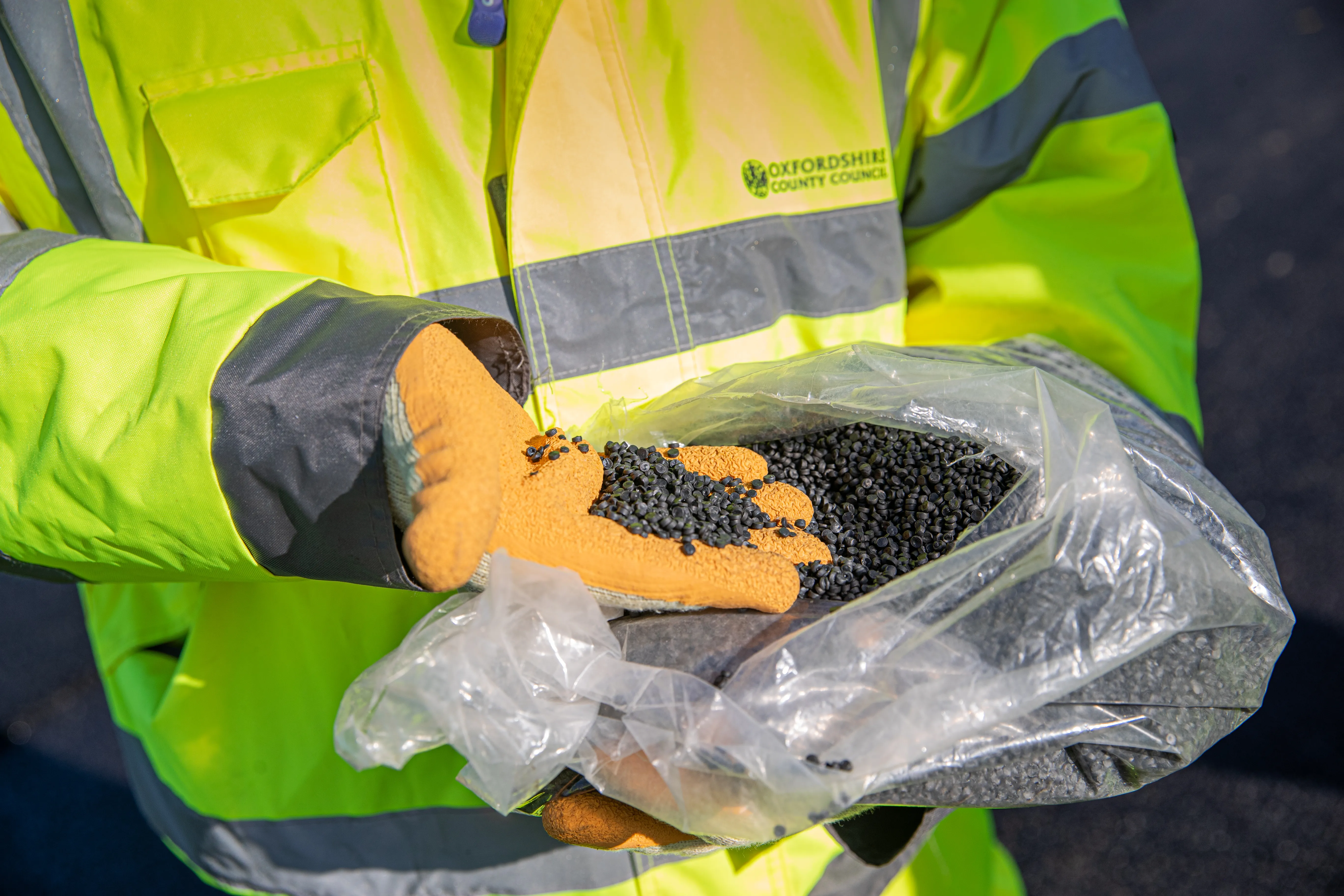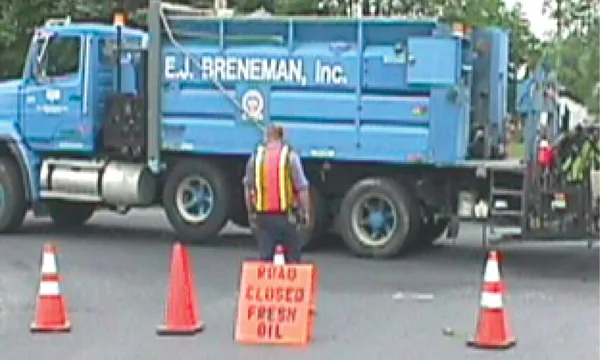
Iterchimica has re-surfaced a UK road section as a trial using an upgraded asphalt super modifier containing Directa Plus G+ graphene.
Directa Plus is a producer and supplier of graphene-based products for consumer and industrial markets and Iterchimica is an Italian-based manufacturer of products that enhance asphalt performance.
The trial in Curbridge, in the English county of Oxfordshire, is the refurbishment of the two upper layers of a 750m-long section of road with the laying of asphalt concrete with a proprietary graphene-enhanced super modifier. The trial is being conducted with the co-operation of Oxfordshire County Council and the prime contractor is Skanska.
The project – all work done in November - is part of the Oxfordshire’s Structural Maintenance Programme (construction 2019). The 750m trial section is a Category 7-collector road, according to the local maintenance hierarchy, and located on the main road in the village of Curbridge. It consists in the reconstruction of a stone mastic asphalt – SMA - wearing course and an asphalt concrete binder course (AC 20).
The trial section is further divided into three 250m sections. Section one is with both binder and a wearing course containing the Gipave additive.
The second section is with a wearing course containing neat bitumen and a binder course containing Gipave. Finally, section three is a wearing course containing Gipave and a binder course containing standard bitumen.
The council will monitor the road sections through controls both in the production and laying phase, with collection and analysis of samples. In addition, in the following months, further tests will be carried out directly on the road, also by collecting core specimens.
The goal is to compare asphalt concrete with the super modifier to a traditional asphalt surfacing. Service life, resistance to the passage of vehicles, resistance to deformation and permanent plastic deformation will be observed.
Iterchimica said that the graphene-enhanced super modifier is the result of a three-year research programme. New technologies such as the super modifier could vastly improve the quality of road surfaces throughout Europe and the wider world.
Once laid, asphalt concrete with super modifier can be 100% recycled which can reduce the extraction of new materials from quarries and first-use bitumen, explained Giulio Cesareo, founder and chief executive of Directa Plus. “This trial is an important step for Directa Plus and Iterchimica, in partnership, in proving the business case for the next generation of graphene enhanced road surfaces…at better value for money and in a more environmentally sustainable way.”
Federica Giannattasio, chief executive Iterchimica, said the Oxfordshire trial allows follow-up investigations based on previous trials. “We obtained impressive results in the previous tests, regarding both durability and road pavement service life extension, more than 250%. Gipave is our latest patented innovation, obtained through a teamwork with Directa Plus, Milano Bicocca University and G.Eco. This is an Italian technology to create green, high-tech, highly resistant, eco-sustainable and 100% recyclable road pavements.”
Giannattasio said that from next year the new production plant will launch a product that will help to meet green and circular economy standards, UN Sustainable Development Goals and the 2015 Paris agreement on climate. “Gipave will increase road durability, will decrease maintenance needs and will allow the recycle of existing materials and of road pavements once ended their service life,” he said.
Jim Daughton, operations director for Skanska, noted that if successful, the fully recyclable product “will help us more than double the durability of asphalt used in highways maintenance, thus significantly increasing the lifespan of our roads, while reducing carbon, which is key as we work with our supply chain to achieve net-zero carbon emissions by 2045”.









